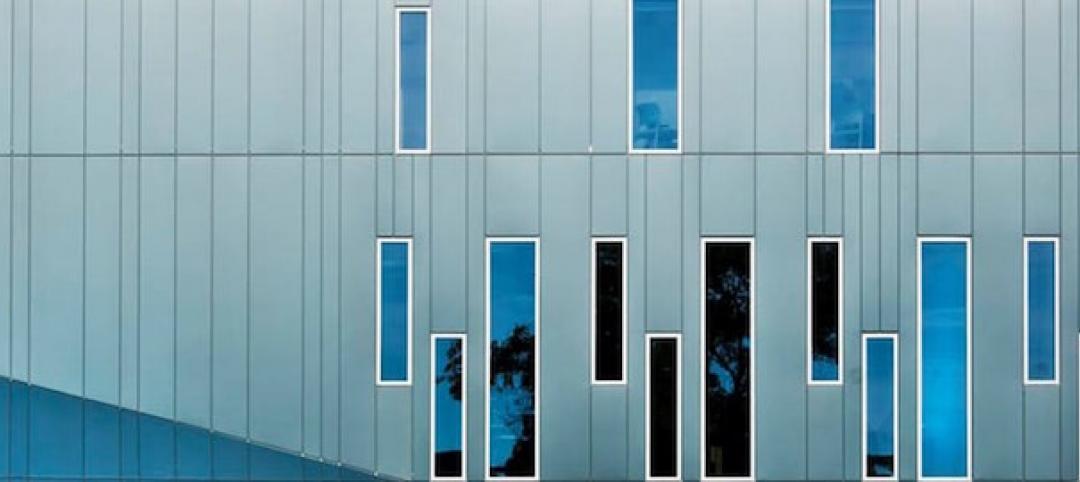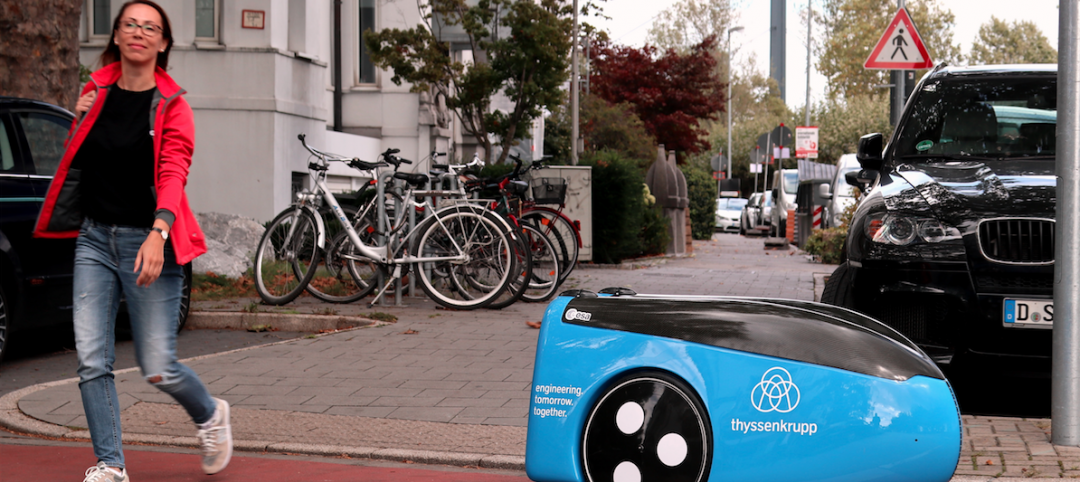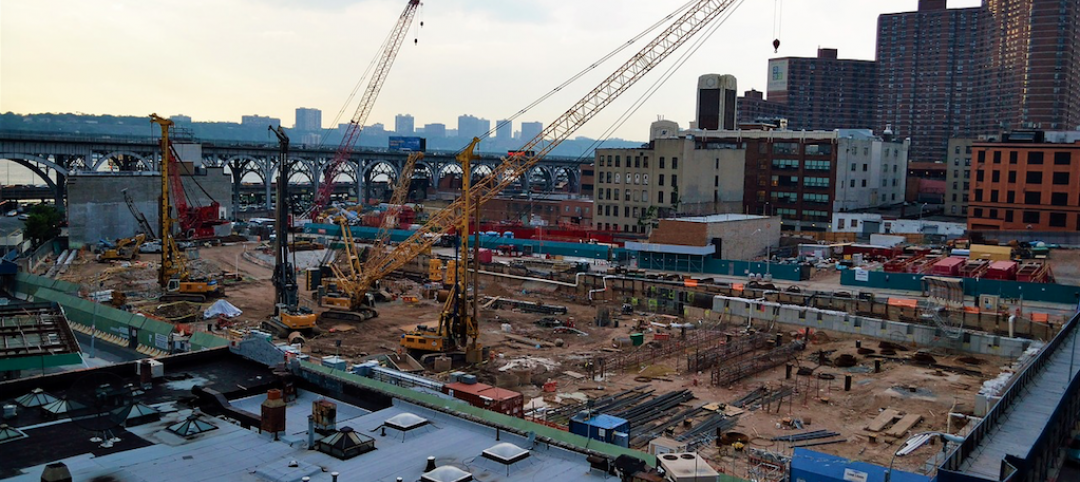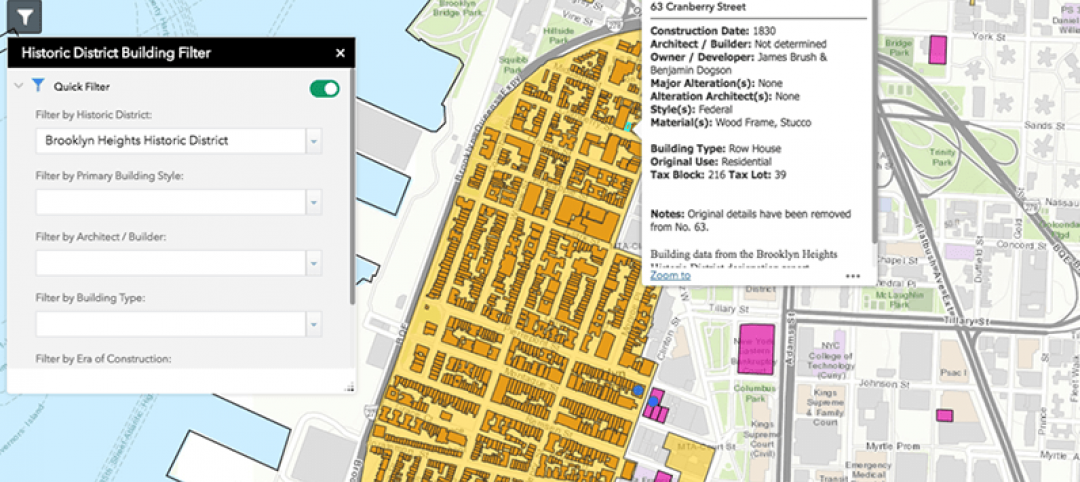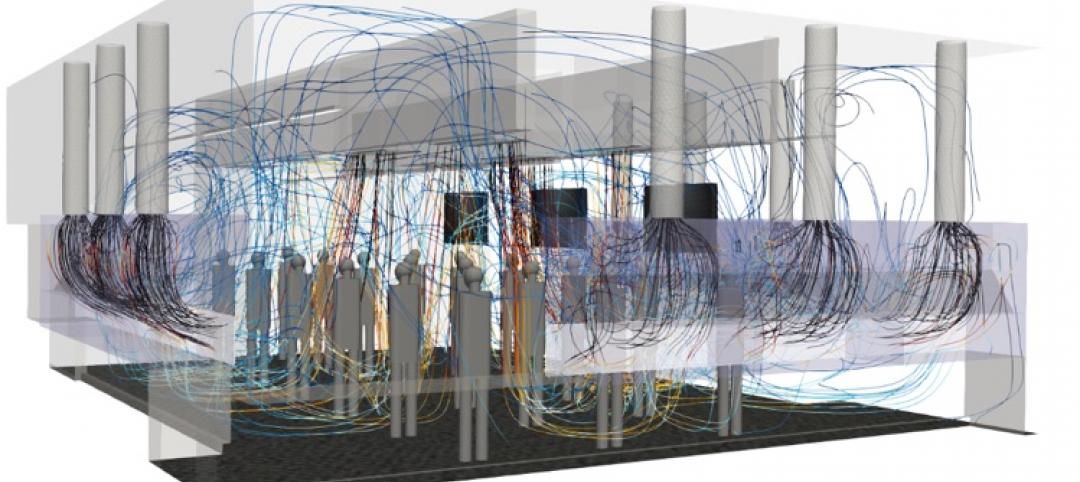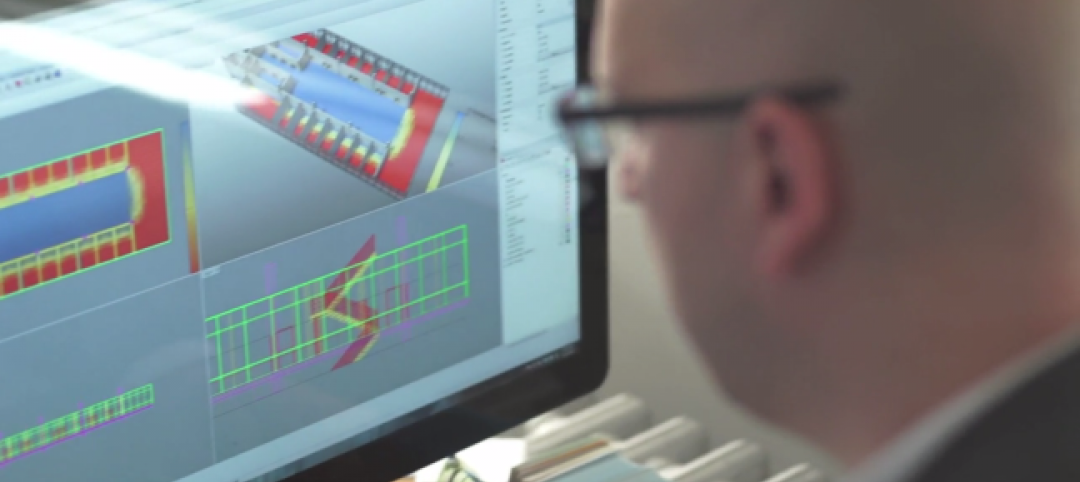Schindler—which manufactures and installs elevators, escalators, and moving walkways—has created a robot called R.I.S.E. (robotic installation system for elevators) to help install lifts in high-rise buildings.
Schindler calls R.I.S.E. the world’s first self-climbing, autonomous robotic system, saying it provides high-level accuracy, better-quality installations, improved planning with BIM integration, and improved worker safety.
As buildings are growing taller and wider, they place increasingly challenging demands on installation schedules. To date, elevators have been installed manually: Mechanics go into the elevator shaft to determine the correct mounting position of guide rail brackets, while drilling holes in the concrete walls to position the anchor bolts that hold the brackets. The same repetitive, manual procedure applies to the installation of elevator landing doors.
Watch R.I.S.E. in action:
With Schindler R.I.S.E, the Switzerland-based company has fully automated this part of the installation process. As a result, the elevator fitting can be done more quickly and accurately, while also improving the health and safety conditions for technicians. The innovation was shortlisted in the Innovation Leaders category of the Swiss Technology Award.
“As buildings are becoming higher and are erected faster, Schindler R.I.S.E is an effective tool in the tall building industry. It makes installations faster, safer, and more accurate, all benefiting our customers and technicians,” Thomas Oetterli, Schindler CEO, said in a statement. “Schindler R.I.S.E also serves as a flagship project for the general introduction of robotics in the construction industry to increase safety, quality, and efficiency on construction sites.”
Schindler R.I.S.E was first deployed in 2017 as a prototype. It then underwent testing on projects including The Circle at Zurich Airport. In 2020, after completing the testing phase, Schindler R.I.S.E was first deployed in Vienna’s TrIIIple project and Warsaw’s Varso Tower. The robot also has been used for Dubai’s Uptown Tower.
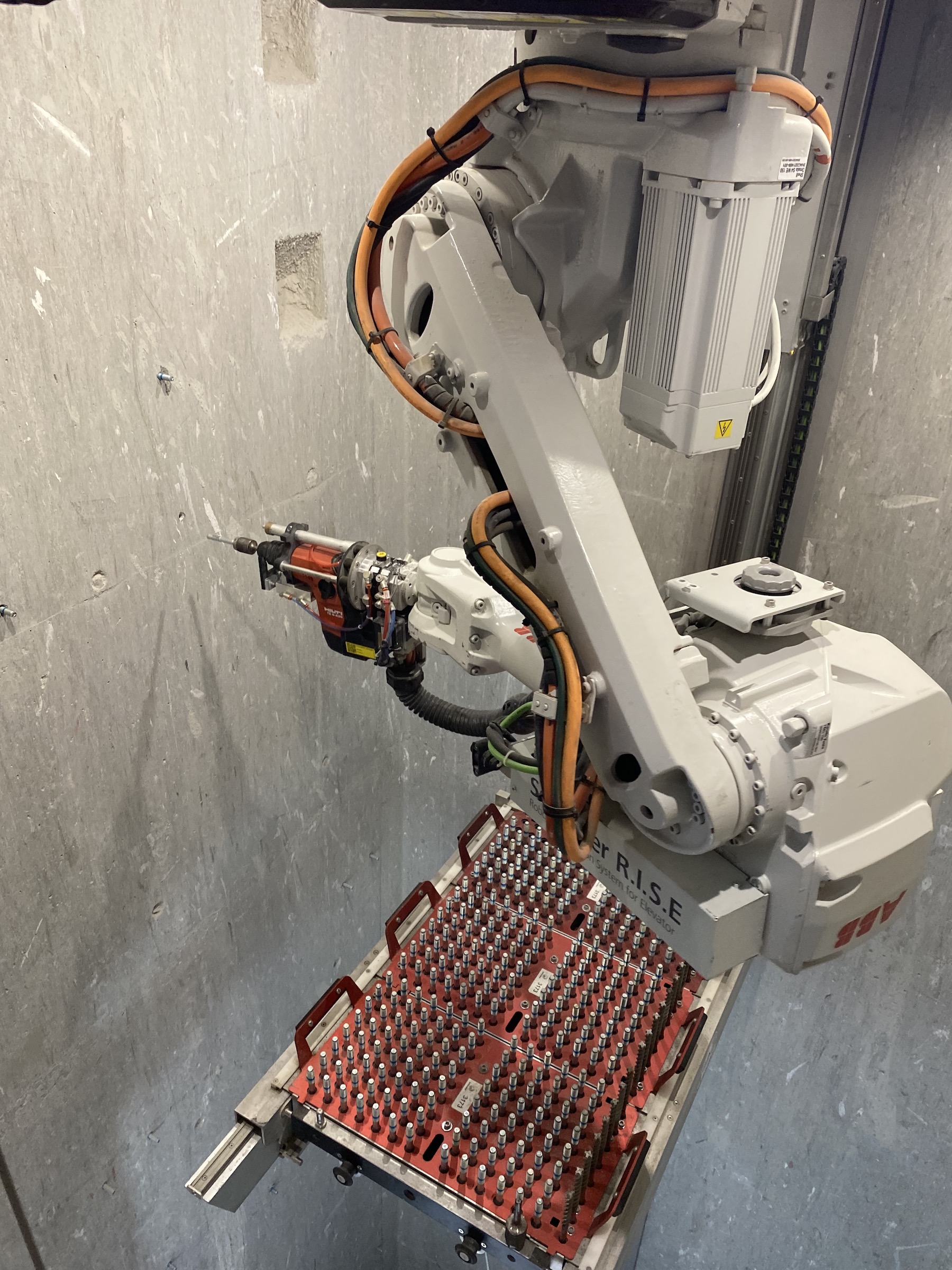
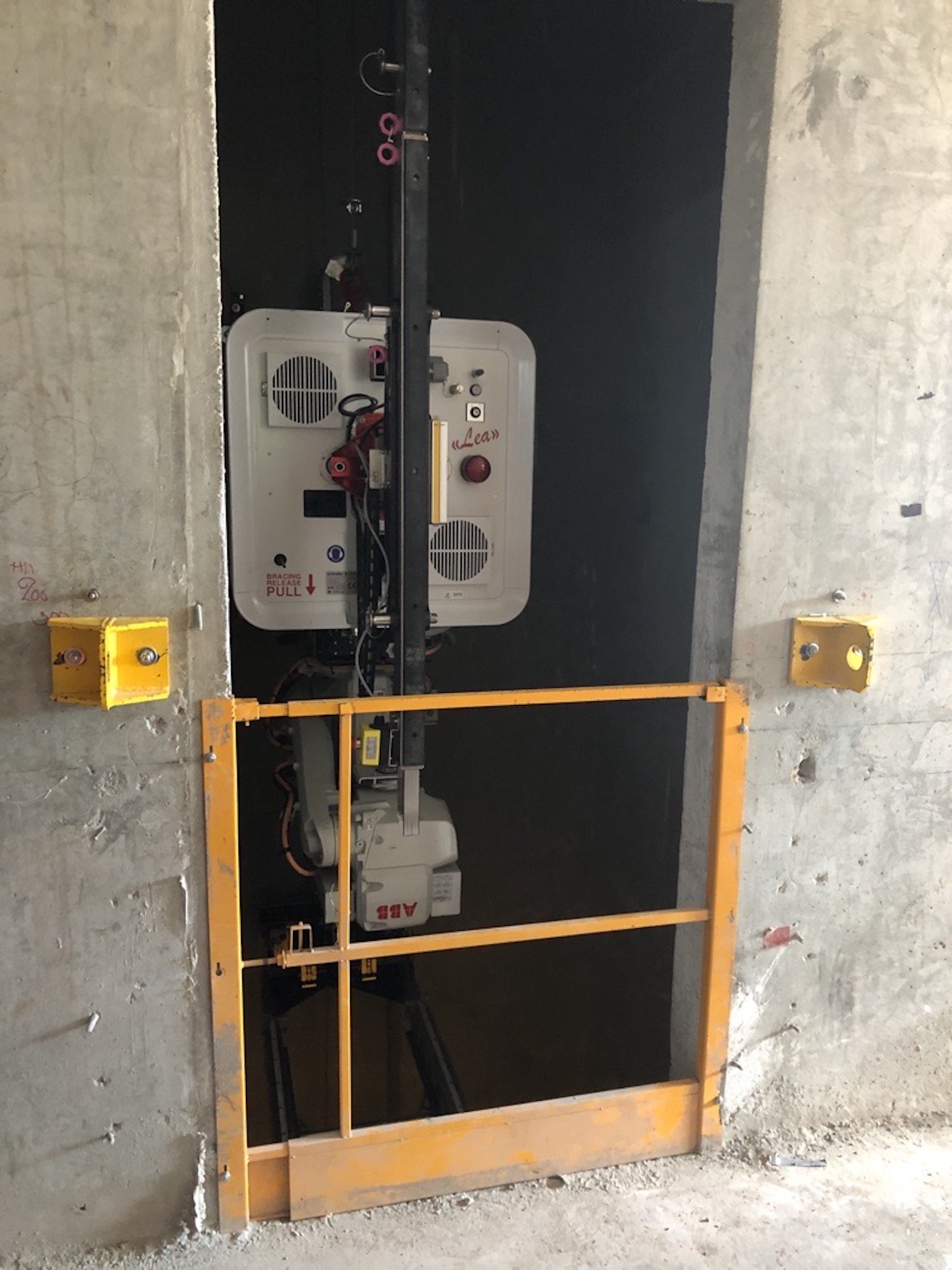
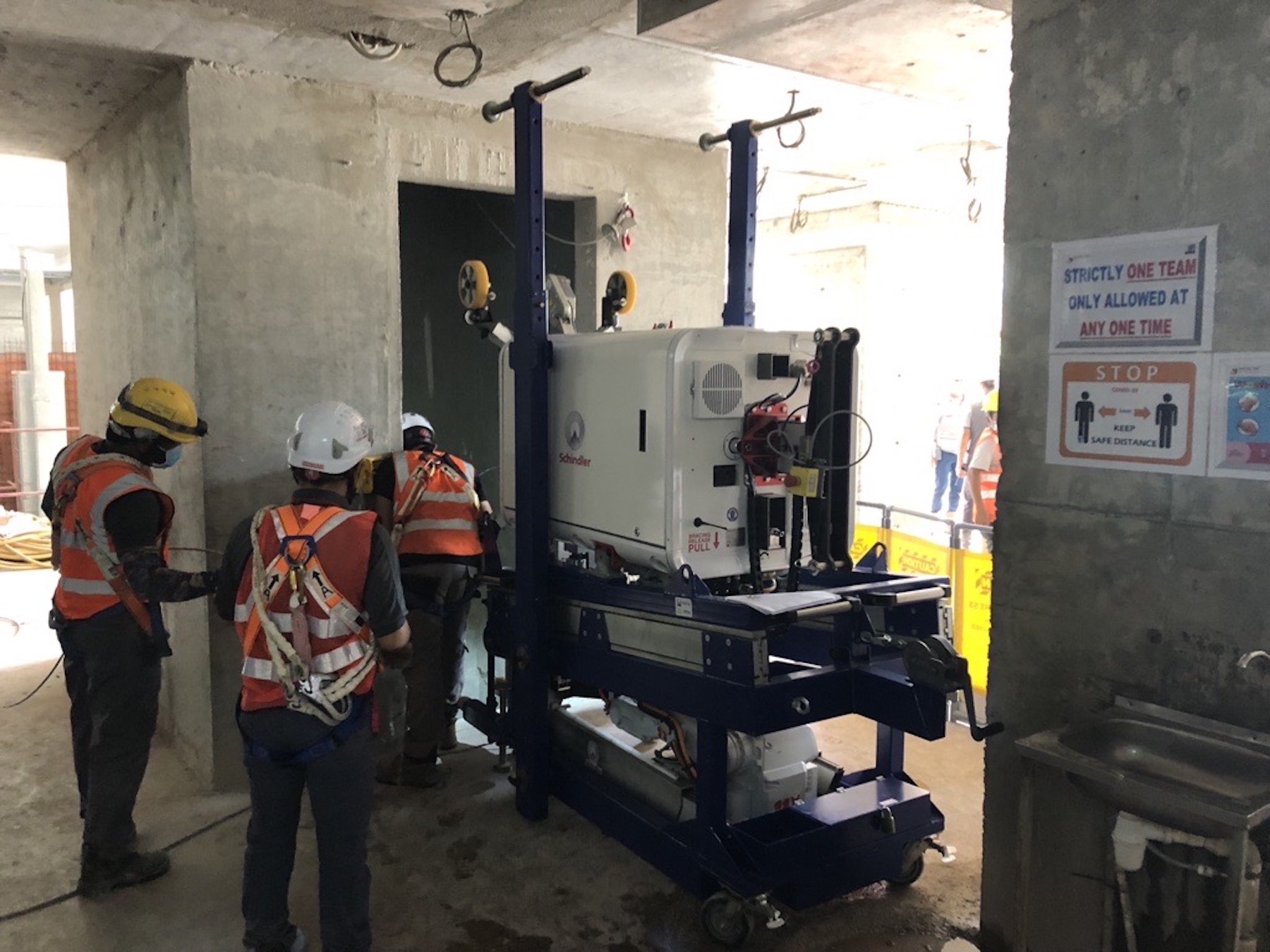
Related Stories
AEC Tech | Feb 28, 2018
Nine tips to bridge the cybernetic design gap
Unlike other technologies we have seen, augmented and virtual reality are looking to have staying power in a truly disruptive way.
AEC Tech | Jan 29, 2018
thyssenkrupp tests self-driving robot for ‘last mile’ delivery of elevator parts
“With driverless delivery robots, we could fill a gap and get spare parts from our warehouses to the jobsite faster,” said thyssenkrupp SVP Ivo Siebers.
AEC Tech | Jan 25, 2018
Four high-tech solutions to mitigate theft on the jobsite
Geo-fencing and drone surveillance are among the tech solutions for protecting jobsites from asset loss.
BD+C University Course | Jan 2, 2018
The art and science of rendering: Visualization that sells architecture [AIA course]
3D artist Ramy Hanna offers guidelines and tricks-of-the-trade to ensure that project artwork is a stunning depiction of the unbuilt space.
Reconstruction & Renovation | Dec 21, 2017
Interactive map includes detailed information on historic New York City buildings
The New York City Landmarks Preservation Commission launched a new, enhanced version of its interactive map, Discover NYC Landmarks.
AEC Tech | Dec 20, 2017
6 CFD post-processing tips to improve visualization productivity and quality
Southland Engineering’s Abdullah Karimi offers helpful tips for making computational fluid dynamics (CFD) models more productive.
Sponsored | Building Team | Nov 3, 2017
4 strategies for marketing your AEC firm
Having a clearly defined competitive brand and a fine-tuned marketing approach can give your firm a significant competitive advantage.
Sponsored | AEC Tech | Oct 19, 2017
3 reasons why your firm needs cloud software
For firms looking to propel their architectural design services to new heights and levels of sophistication, a consolidated cloud-based platform is a valuable asset.
AEC Tech | Oct 6, 2017
How professional bias can sabotage industry transformation
Professional bias can take the form of change-resistant thinking that can keep transformational or innovative ambitions at bay. Tech consultant Nate Miller presents three kinds of bias that often emerge when a professional is confronted with new technology.
AEC Tech | Aug 25, 2017
Software cornucopia: Jacksonville Jaguars’ new practice facility showcases the power of computational design
The project team employed Revit, Rhino, Grasshopper, Kangaroo, and a host of other software applications to design and build this uber-complex sports and entertainment facility.


